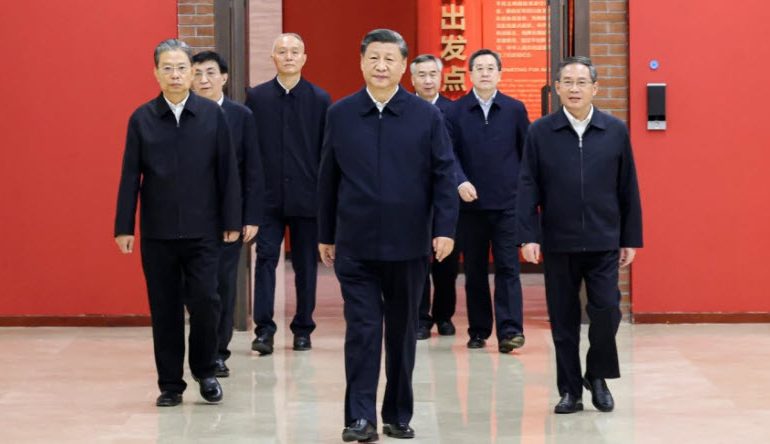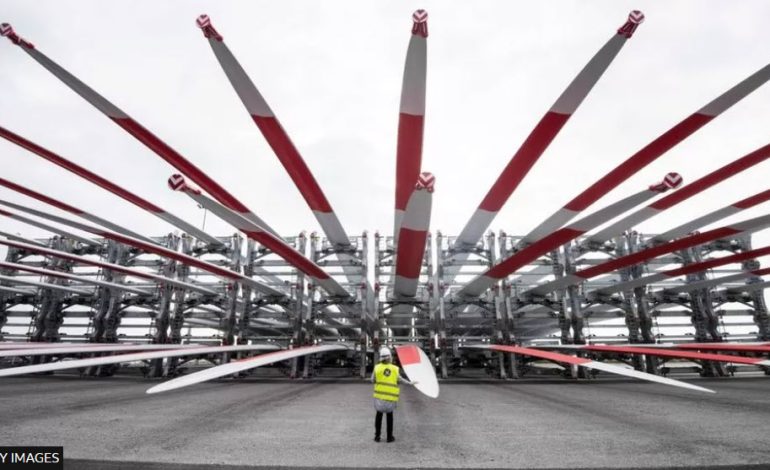
China’s hidden hold on the West’s national security supply chain
BY SAM OLSEN
15 January 2023
A key lesson learned from the COVID pandemic is how important the international supply chain is to national security. Whether it was personal protective equipment (PPE) for the health care system, or microchips for car production, or the food system, shortages from suppliers abroad led to widespread disruption across the U.S. and its Western allies. The national security supply chain is far more than just a military matter — it is expected to include keeping a country’s economy and society healthy. As President Biden noted in his introduction to the National Security Strategy released in October, “If parents cannot feed their children, nothing else matters.”
The problem for Washington is that a strategic competitor — China — is responsible for around 30 percent of global manufacturing output. It is dominant in almost all areas of manufacturing, ranking first in terms of share of global output in 16 of 22 tracked categories, and second in six others. In short, China produces parts and materials that keep American factories and defense assets going.
China has demonstrated that it is willing and able to use trade as a strategic weapon, targeting supply chains to force countries to adhere to its geopolitical goals. Although foodstuffs are often sanctioned, as bans can be blamed plausibly on the presence of pests, other commodities are also used to punish countries, such as the export of construction sand to Taiwan in 2022, in response to former House Speaker Nancy Pelosi’s (D-Calif.) visit to the country, or rare earth exports to Japan in 2010, following a maritime dispute in the East China Sea. Although Beijing denied a rare earths ban — claiming it was just a general reduction on export quotas — the impact on Japan and the global supply chain was very real.
These punitive actions over the years have persuaded some Western countries to reduce their dependence on China, a movement that gained momentum from the fallout of the COVID pandemic. The European Union’s Critical Raw Material Act of 2022 followed several pieces of legislation in the United States, including the CHIPS and Science Act, aimed at countering dependency and building national resilience.
However, what governments often do not consider is the threat to national security supply chains from indirect exposure to China. Recent research by The Evenstar Institute, a London-based think tank, shows how much influence China has over third-party countries that are vital for the West’s supply chain. Take Cambodia, which the Evenstar influence model shows is almost a client state of China; it is also an important provider of uniforms to the British and other militaries. Indeed, China is a critical supplier of components and raw materials to countries that are vital for Western interests.
Beijing has a track record of using third-party countries to steer nations toward its own strategic goals. In November 2021, for example, Lithuania allowed the opening of a Taiwan Representative Office, which Beijing objected to through direct sanctions on the Baltic state. When these sanctions did little to change the decision of the Lithuanian government, China moved to target German firms that sourced components from Lithuania. This included the automotive parts company Continental, which found that their products were now unable to clear customs in China. This was interpreted as a clear attempt to get Berlin to force Vilnius to back down.
Although other countries with more dependence on China might have buckled, Lithuania so far has not changed its stance on Taiwan. In cases like this, where indirect pressure doesn’t work, Beijing has one more ace to play: its increasingly strong position in the international logistics chain. This rests on its global port ownership and operations, its ownership of major container shipping and logistics companies, and the worldwide spread of its logistics technology.
China’s port and logistics network is significant. Companies from China own or operate over 93 ports in 53 countries, including in Seattle and Los Angeles. This provides China with a round-the-clock presence in the global maritime domain, and therefore immense potential influence over the flow of goods, including those in the U.S. national security supply chain.


